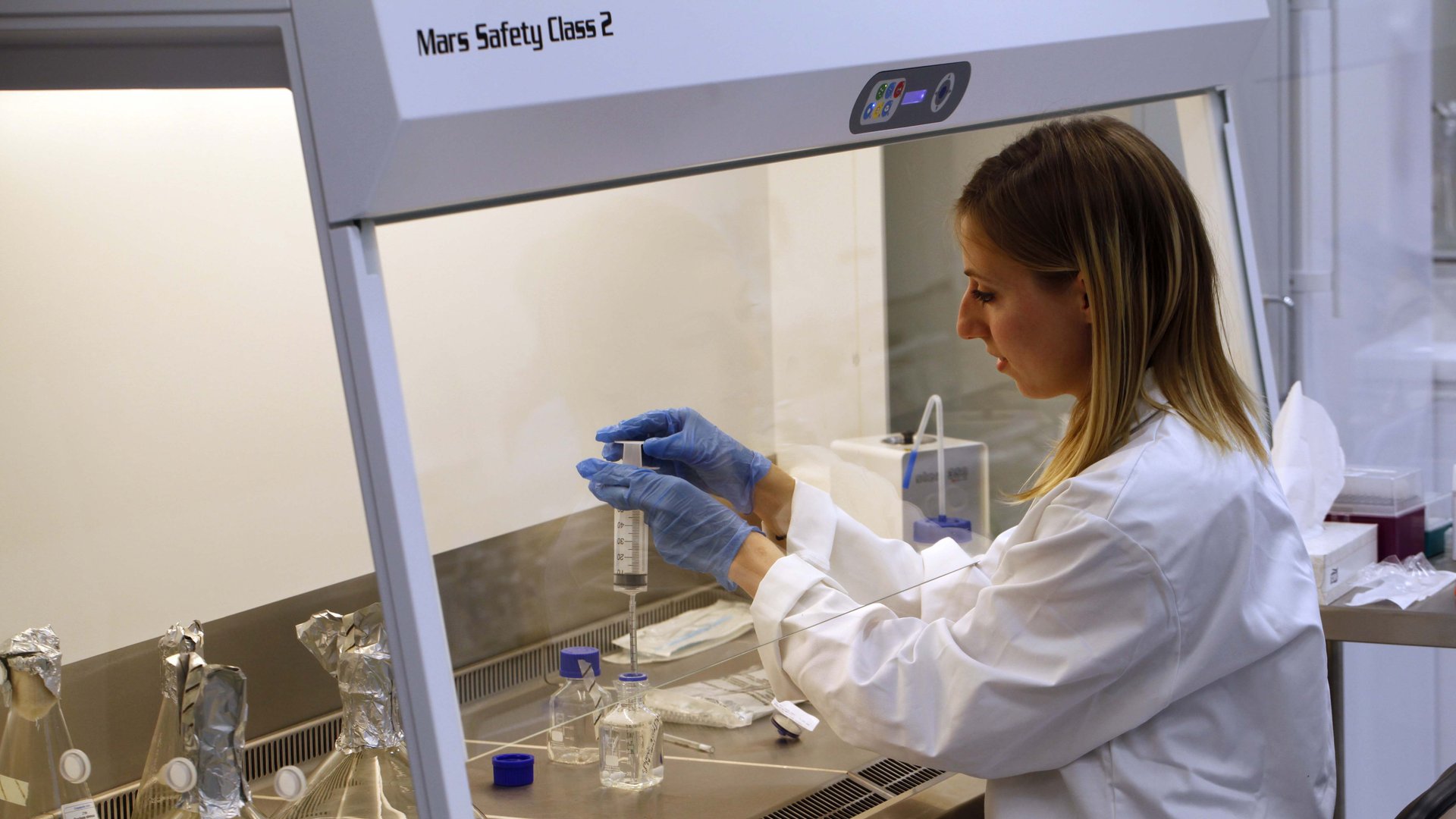It is thanks to microbiology that AIDS is now more a chronic than a fatal disease and that we are able to vaccinate children against all sorts of diseases. There would be no beer, yoghurt or cheese without microbiology. An empty fridge. Microbiology is everywhere and is becoming increasingly important.
It is thanks to microbiology that AIDS is now more a chronic than a fatal disease and that we are able to vaccinate children against all sorts of diseases. There would be no beer, yoghurt or cheese without microbiology. An empty fridge. Microbiology is everywhere and is becoming increasingly important.
Making the invisible visible
Microbiologists have all kinds of ways of making microbes and their construction and activities visible. Traditionally these methods have included the use of special dyes, microscopy and the culture of microbes in petri dishes. Present-day researchers also make use of the microbes’ genetic material. There are lots of branches of microbiology today, such as virology (the study of viruses), mycology (the study of fungi), parasitology (the study of parasites and their hosts) and bacteriology (the study of bacteria).
Old Dutch pride
Dutchman Antoni van Leeuwenhoek is known as the founding father of microbiology. He was the first person to discover micro-organisms. He did this using his own home-made microscopes.
Microbiology makes it easier
Microbiology is increasingly being focused on how microbes can be put to use, for example in the production of medicine, food and biofuel. We have a surprising amount to be thankful to microbiologists for. Our lives are made much easier by the many products manufactured by or from microbes. These include antibiotics, taste enhancers, colouring agents, bioethanol, enzymes and cheese.

